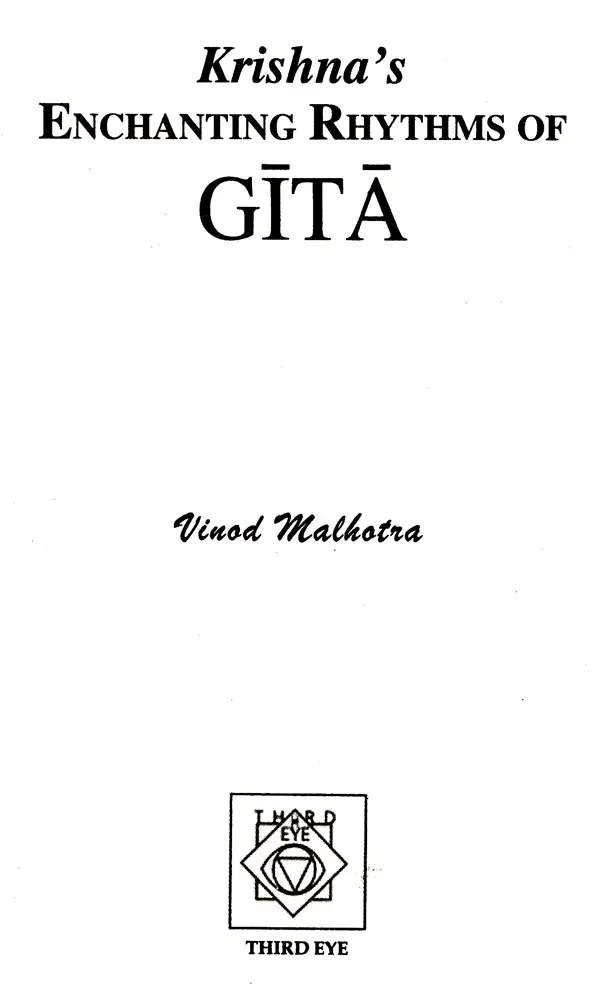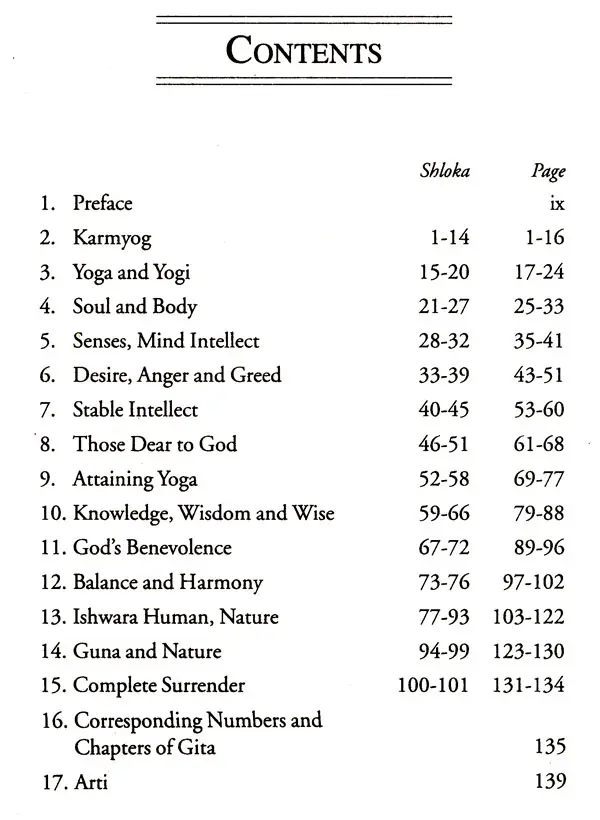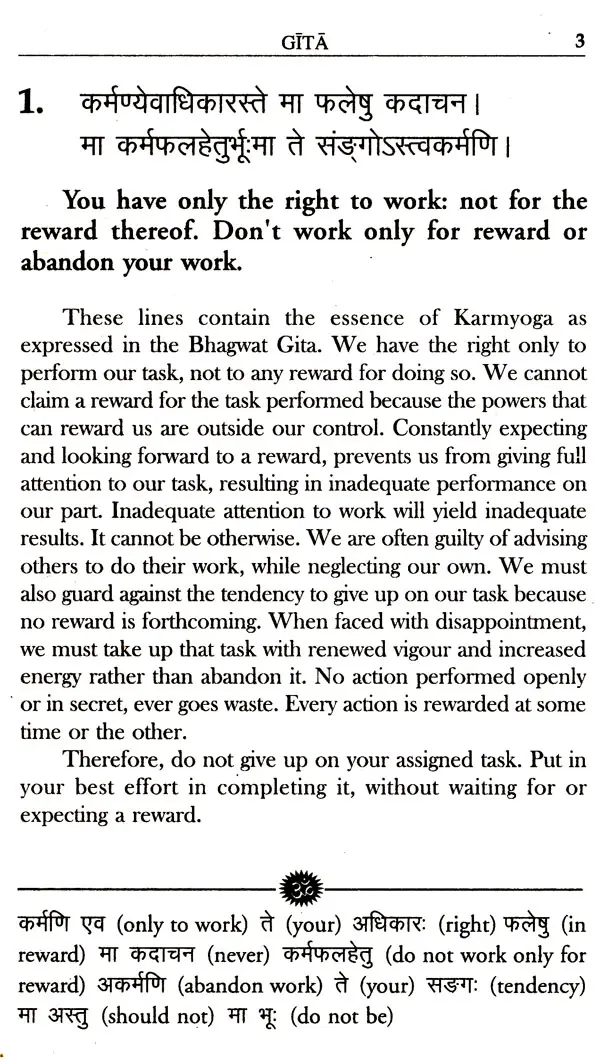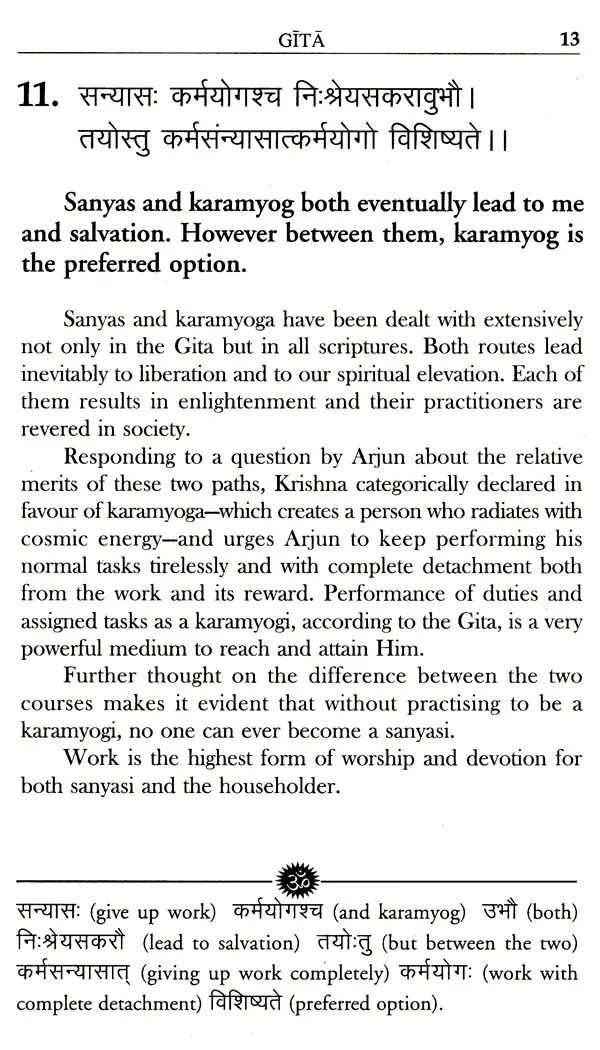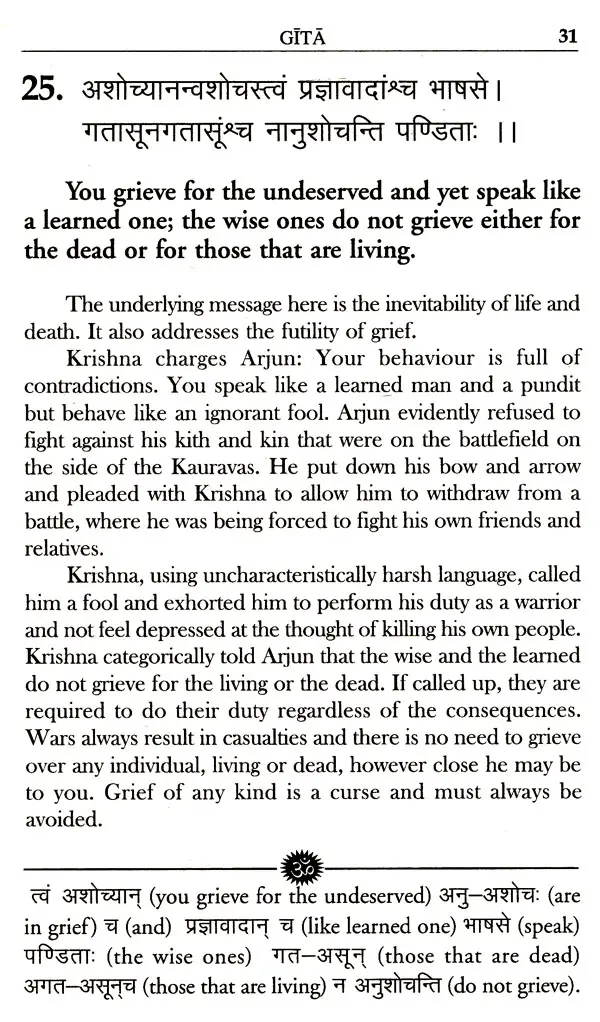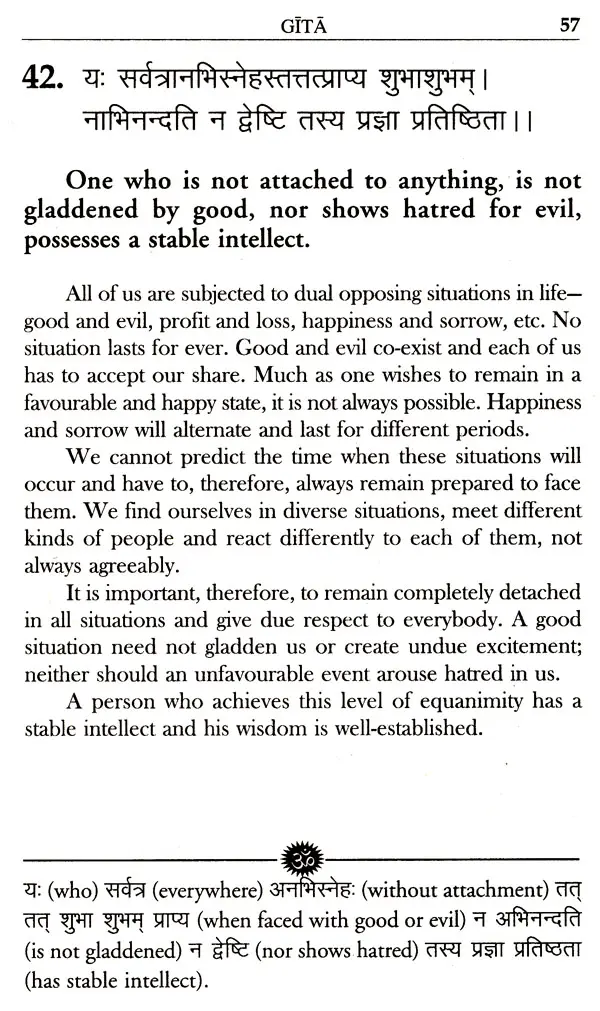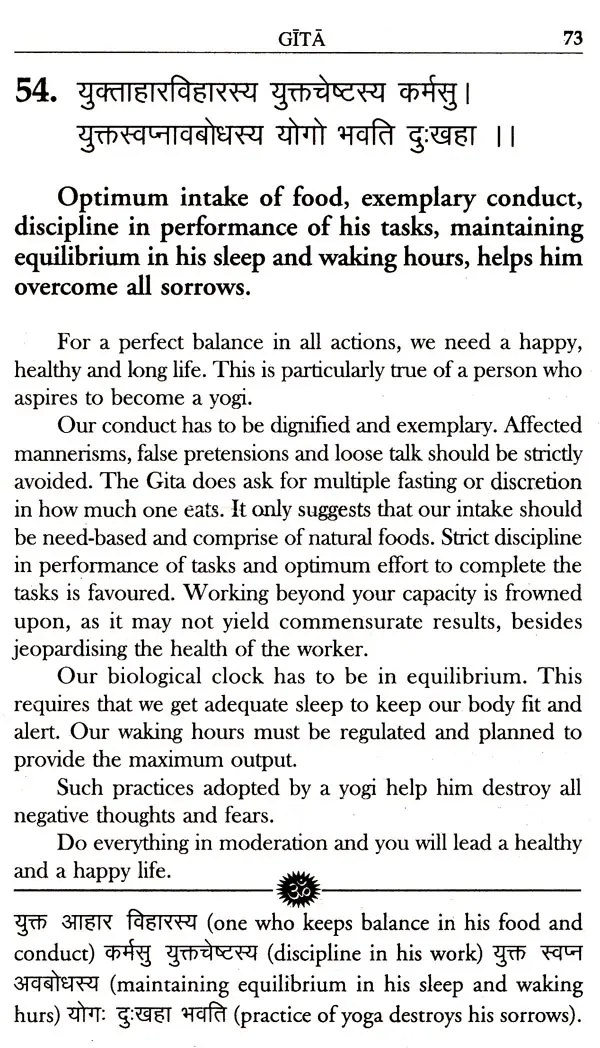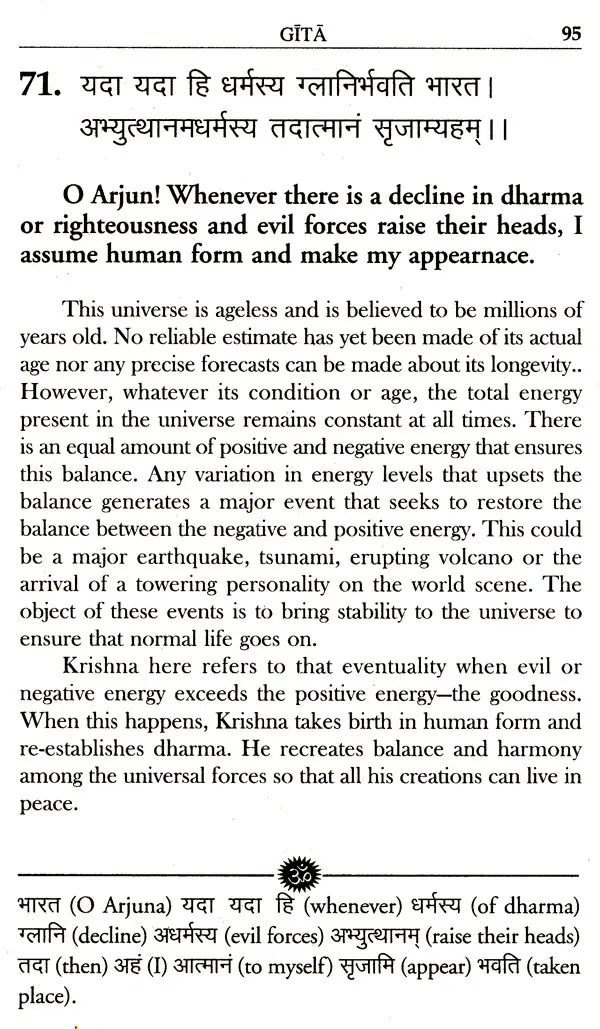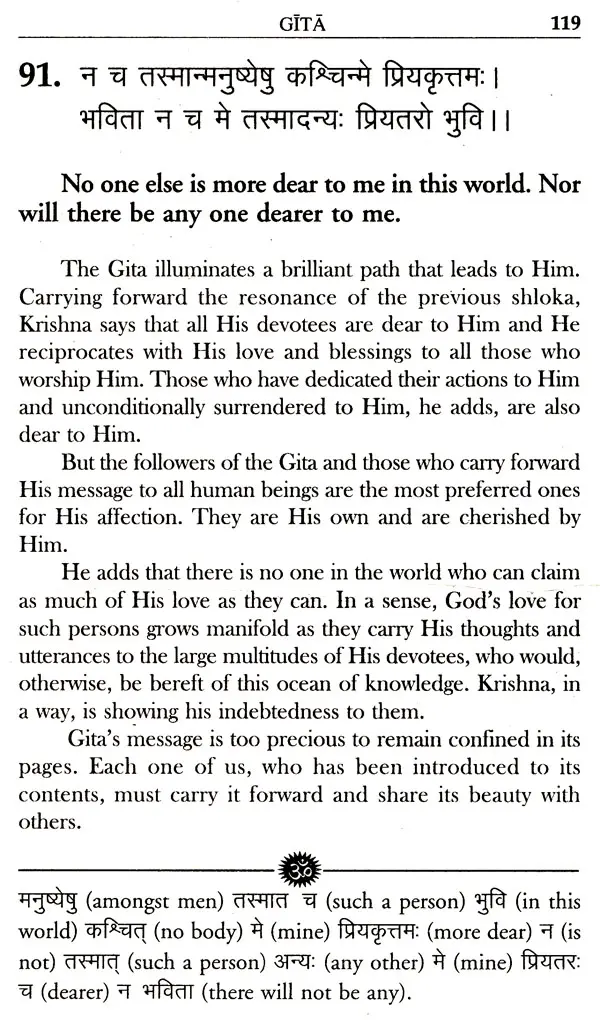
Krishna's Enchanting Rhythms of Gita: The Immortal Song (With 2 CD)
Book Specification
| Item Code: | UAO358 |
| Author: | Vinod Malhotra |
| Publisher: | Third Eye |
| Language: | Sanskrit Text with English Translation |
| Edition: | 2010 |
| ISBN: | 9788182744653 |
| Pages: | 152 |
| Cover: | HARDCOVER |
| Other Details | 8.80 X 5.80 inch |
| Weight | 370 gm |
Book Description
A closer examination will also reveal. its hidden lyrical and rhythmic beauty. Each of its seven hundred Shlokas, have been written in the form of a verse and all of them are steeped in the traditions of Indian classical music. All verses have the same meter and they have been composed in such a way that makes them eminently amenable to the rigors of Sur and Taal. Sanskrit in Gita is not in a narrative form and cannot therefore be read as a story.
Its author, Lord Krishna was anything but prosaic. He was lyricism personified. Krishna's picture is incomplete without a flute. His romance with Radha and the anecdotal Ras-lila would have looked. pedestrian without music. Amongst the Vedas, He is Samveda-A complete treatise on music and dance.
All this leads to a clear conclusion. Krishna wanted Gita to be sung and in this presentation, we have attempted to do that composed 101 Shlokas in ten different Ragas in the traditions of Hindustani classical music and sung them with the support of Tanpura, Harmonium, Sitar, Flute and Tabla.
It is our belief that Gita's verse presented as a song, will demystify its esoteric content and with clear pronunciation and accent, listeners will find it an experience. The text pertaining to each verse, with its meaning and a brief commentary along with the dictionary in a sequential order will ensure better appreciation.
This indeed would represent a combination of Gyan and Bhakti as it were.
Enchanting Rhythms of Gità is a set of books and two CDs containing 101 shlokas, selected from different chapters of the Gitä. The book contains the shlokas, their translation, a brief commentary and word meanings to enable readers and listeners to experience complete joy and bliss.
1891.
Arjun put down arms at the feet of Lord Krishna when he saw himself pitted against his own kith and kin in the battle. He refused to fight and was willing to be banished along with his four brothers, without any claim to the share of the kingdom that rightfully belonged to them.
Indian philosophy, the Hindu view of the life or, for that matter, the entire gamut of this ancient thought, carries an indelible impression of Gita. Indeed, it provides an essence to Vedanta thought, the Upanishads and all other holy and temporal scriptures combined.
The reach and relevance of its thoughts cut across all religions, nationalities and geographical entities.
In the words of the famous philosopher. Aldous Huxley, the Gita is the most lucid and comprehensive summary of philosophical thought till date. It has relevance not only for Indians, but also for the entire mankind.
Mahatma Gandhi lost his biological mother very early in life. He took refuge in the readings of the Gita like a child to his mother and was never disappointed.
According to him, his life was replete with external miseries, but they failed to impact him adversely, only because of the teachings of the Gita.
**Contents and Sample Pages**
